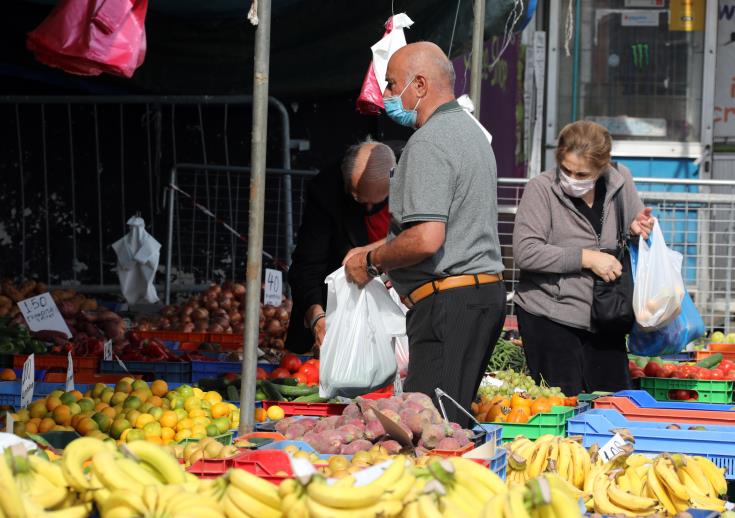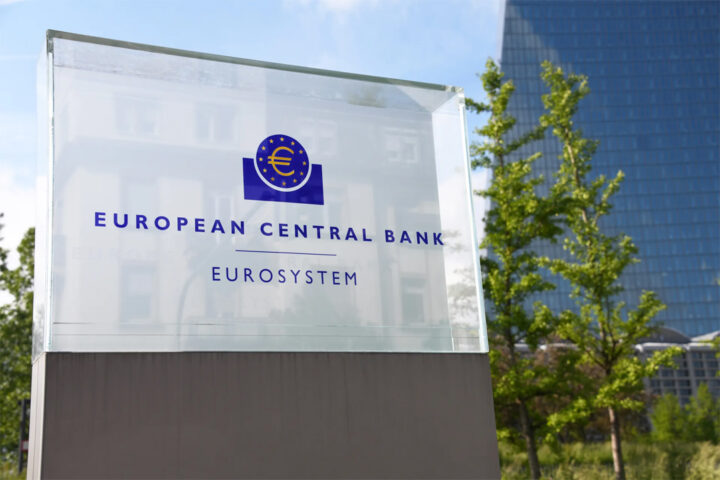The ECB announced its decision to raise the three key interest rates by 25 basis points amid persistent inflation, which “is still expected to remain too high for too long.”
According to the European Central Bank, “the rate increase reflects the Governing Council’s assessment of the inflation outlook in light of the incoming economic and financial data, the dynamics of underlying inflation, and the strength of monetary policy transmission.
“The September ECB staff macroeconomic projections for the euro area see average inflation at 5.6% in 2023, 3.2% in 2024 and 2.1% in 2025.
“This is an upward revision for 2023 and 2024 and a downward revision for 2025,” it added.
“The upward revision for 2023 and 2024 mainly reflects a higher path for energy prices. “Underlying price pressures remain high, even though most indicators have started to ease.”
Clearly, this will affect growth in the euro area economy, which, according to the latest ECB projections, will expand by 0.7% in 2023, 1% in 2024 and 1.5% in 2025.
For most of this year, investors have worried about persistent inflation, yet the gloomy rhetoric ran ahead of reality amid strong domestic demand and labour shortages.
Now, reality is catching up with the rhetoric.
Higher borrowing costs are starting to bite.
The local hotel industry of Cyprus, which is heavily indebted, has seen spectacular growth in the first eight months with strong earnings before interest and taxes, known as EBITDA. However, their bottom line may be in the red amid high borrowing costs.
On the other hand, banks have made a strong comeback with more profits in the interim period than they have seen in the last eleven years combined.
This is neither healthy nor sustainable and is bound to create a new cycle of non-performing loans (NPLs), especially if economic conditions respond more violently to tightening financial conditions.
Former Central Bank Governor Panicos Demetriades, who was also a member of the ECB Governing Council, commenting on the decision, said: “The ECB interest rate decision is understandable given where inflation remains today and in light of the increase in the forecasts for 2024 and 2025.
“Inevitably, it will squeeze the disposable incomes and liquidity of borrowers on flexible interest rates, although borrowers stand to benefit from the reduction in the real value of their debt that is brought about by the high inflation rate.
Impact on demand
Demetriades added: “The higher interest rates will also impact negatively on aggregate demand by discouraging new borrowing, which will impact on new consumption and investment.
“As a result, it will dampen economic growth in the euro area, although it is not, as yet, expected to cause a recession.
“Reading between the lines in the ECB’s latest monetary policy statement, I consider another hike in interest rates highly unlikely.”
But, the tenacity of inflation may also be due to inadequate public policy decisions.
That’s because it takes the combined effort of monetary and fiscal policy to fight high and prolonged inflation.
Without governments taking serious action and doing their bit, we will not see inflation recede soon.
Just three months ago, President Christodoulides’ newly elected government, yielding to union pressures, agreed to adjust wages and pensions of public servants to COLA or the cost of living adjustment, which will raise the state budget by €1.2 bln in the next three years and fuel inflation through the back door.
The European Commission and the ECB should try to work closely to fight inflation in the eurozone area with member states if they are to take advantage of lower inflation faster.
True, the war’s outcome in Ukraine will greatly influence the course of inflation everywhere.
However, it became painfully clear to everyone in the West that energy supply should never be allowed again to become a weapon in the hands of autocrats, dictators or any other type of clown who happens to run an energy-rich nation.
Resorting to sustainable energy policies and imports, particularly from China, can help bring down inflation eventually and minimise the risks of supply shocks.
But, such objectives demand greater political will and commitment from leaders in Europe and its allies.
Alternatively, a new crisis may be far more severe, so prices will spiral uncontrollably no matter how much the ECB squeezes.
Michael Olympios is Editorial Consultant for the Financial Mirror










